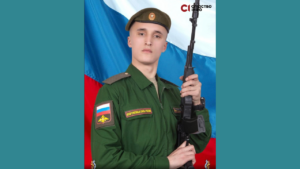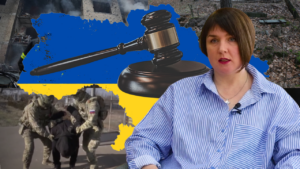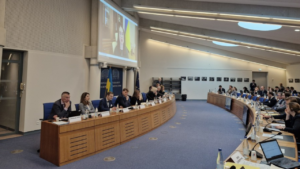“Kharkiv Partisan,” Spies, and Those Who Didn’t Want to Go to Russia: Who Was Released in the “1,000 for 1,000” Exchange
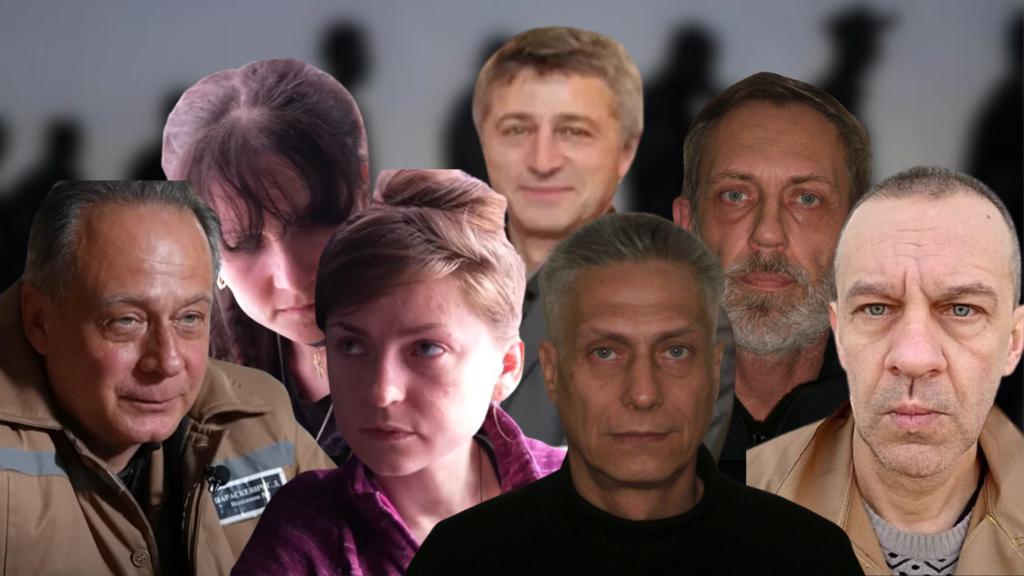
Between May 23 and 25, Ukraine and Russia carried out a “1,000 for 1,000” swap of prisoners of war and civilians. In this exchange Ukraine transferred 120 individuals who had been charged and convicted of crimes against the foundations of national security. To make this possible, Ukrainian courts, in the days leading up to and during the exchange, issued a series of decisions releasing these people from custody.
MIHR analyzed 69 such decisions and reports on notable trends in the cases and personalities of those exchanged.
A significant part of the crimes they are accused of involves passing information to the Russians. But these crimes are qualified under various variations of articles of the Criminal Code. The most common are high treason, wartime collaboration, and unauthorized disclosure of information about the movements of the Armed Forces of Ukraine. Less common are cases involving glorification of Russia’s actions, participation in a terrorist organization, and encroachment on the territorial integrity of Ukraine.
Together with an expert in International Humanitarian Law, we analyzed how the law regulates “civilian” exchanges, what needs improvement in this process, and whom Ukraine handed over to Russia.
“Khochu k svoim”
Hennadii Paraskevych was a doctor and methodologist at the Zaporizhzhia Military Hospital. According to the investigation, in 2022 a colleague from temporarily occupied Tokmak recruited him to collaborate with the Russians. Thus, Paraskevych began passing information to the Russians about wounded military personnel being treated in Zaporizhzhia, as well as other data. In 2023, he was sentenced to 15 years for high treason.
In March 2025, a Radio Liberty journalist visited him in the prison.
“Do you consider yourself a traitor to Ukraine?”, she asks in the report.
“No”, Paraskevych responds calmly. “I was just on the other side. Well, for the other side. For Russia, specifically.”
He then says he passed information not for money. He “voluntarily helped” driven by ideological motives. He called himself a supporter of the “great country,” meaning the USSR, saying he “continued to serve” it. Paraskevych adds that he saw no point in leaving Ukraine, and now, he adds with a smile, he has “effectively moved.” He means that Russia unlawfully included Zaporizhzhia oblast into its territory. Being in a Ukrainian prison, he calmly and almost peacefully insists that he is already on Russian territory. The fact that this doesn’t correspond to reality doesn’t trouble Hennadii.
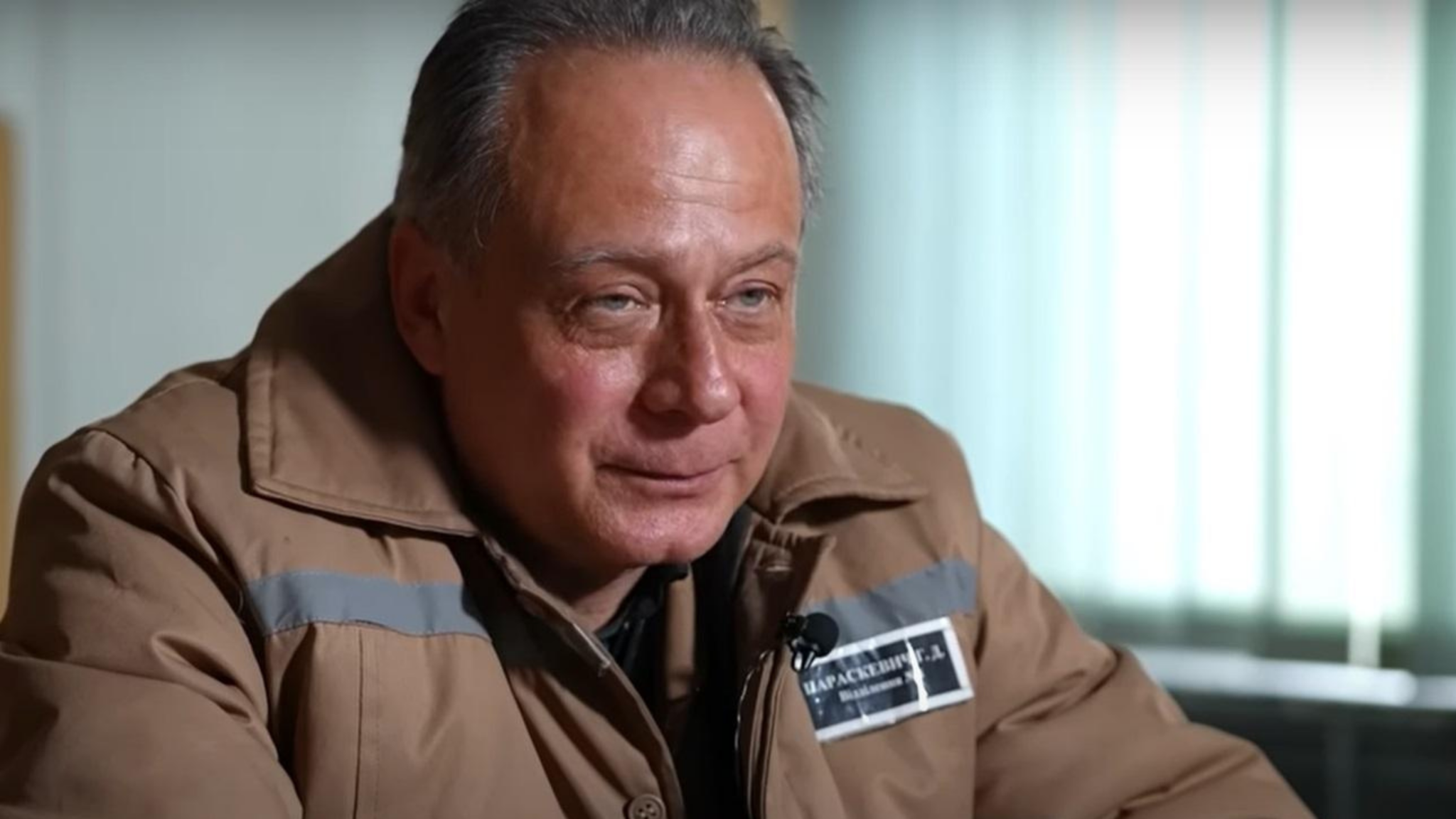
Hennadii Paraskevych. Screenshot from a Radio Liberty report
Paraskevych truly reached Russia at the end of May 2025. On May 21 the Vilniansk District Court of Zaporizhzhia oblast considered the public prosecutor’s motion to release Paraskevych from serving his sentence for exchange. He appears in Volodymyr Zolkin’s video from the exchange process.
Paraskevych is one of the most well-known participants of the “civilian” exchange among those who were awaiting transfer to Russia under the “Khochu k svoim” project.
This is a project of the Coordination Headquarters for the Treatment of Prisoners of War that began operating in July 2024. Those convicted or accused of crimes against the foundations of national security can sign their consent to be transferred to Russia. The website states that 31 people have left Ukraine in this way so far.
Decisions regarding these exchanges are available in the Unified Register of Court Decisions. For example, the decision regarding Armed Forces of Ukraine service member Andrii Kazmin was approved by the Vilniansk Court. In 2023, Kazmin passed information about the location of service members of the 93rd Brigade to a pro-Russian Telegram channel. For this he was sentenced to eight years in prison.
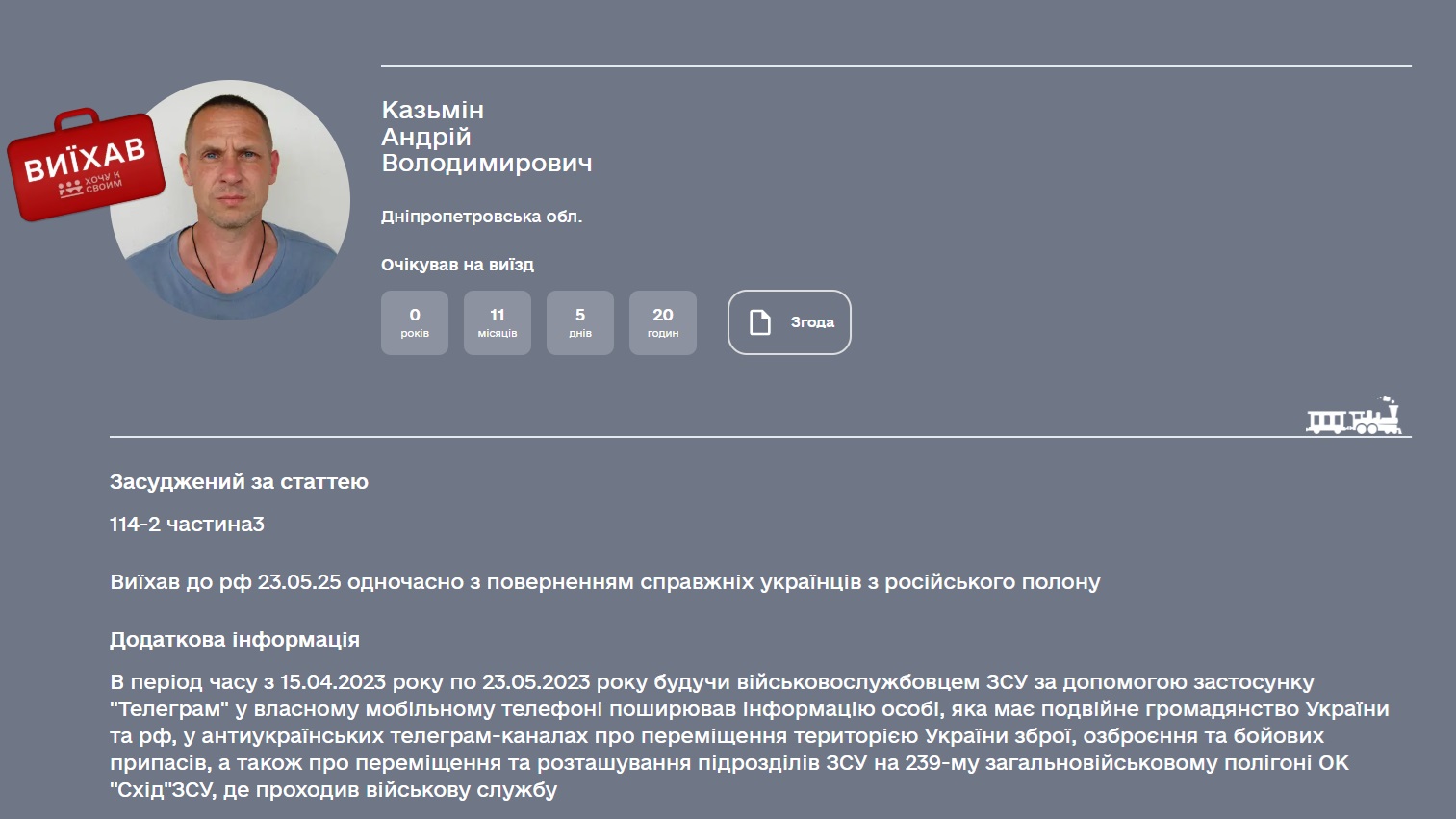
Andrii Kazmin. Screenshot from the “Khochu k svoim” website
At the same time, the Register contains a series of rulings dated between May 21 and 23. These rulings released people from the “Khochu k svoim” database from serving their sentences, but the website doesn’t indicate that they went to exchange. It’s not definitively known whether they were actually exchanged. However, there are no court decisions on their further referral to serve sentences as well. Some of them are on the video of the large-scale exchange by Zolkin. It’s possible they simply were not marked on the website or are awaiting another exchange.
However, people from the “Khochu k svoim” project are not the only ones included in the large exchange.
Who Else Was Included in the Exchange
“Kharkiv Partisan”
Mykhailo Sazonov from Russia’s Volgograd region is named in the “Kharkiv partisans” case. In 2014, under the Federal Security Service’s (FSB) orders, this group planned terrorist attacks in Kharkiv. In 2014 and 2019, Sazonov was charged with participation in a terrorist group and preparation for espionage. However, in both cases he avoided responsibility. As the Kharkiv Anti-Corruption Center reported, the prosecutor’s office requested his release because he allegedly exposed the group.
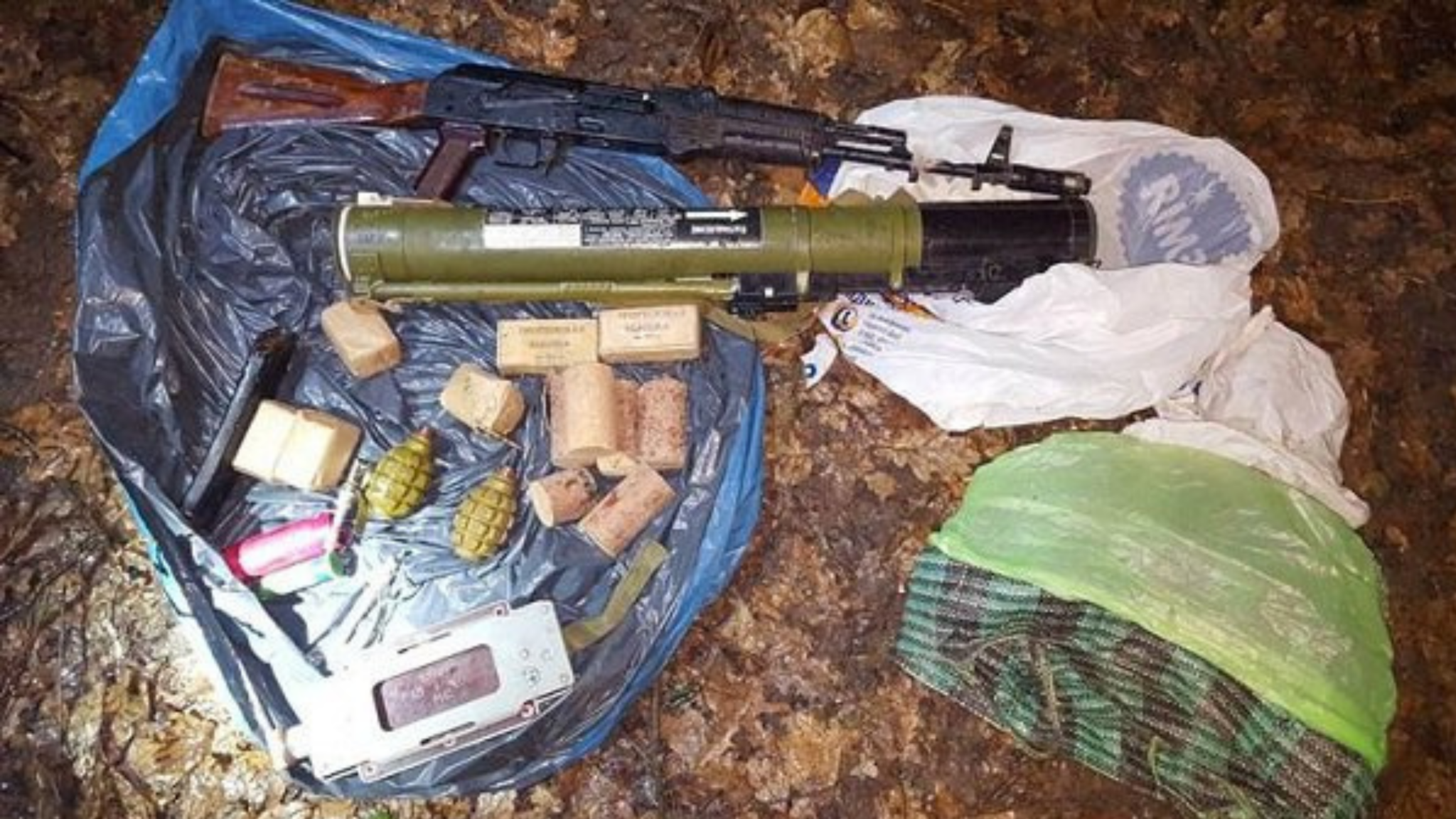
Seized from Kharkiv partisans. Photo: Security Service of Ukraine (SSU)
In 2023, Sazonov was charged with encroachment on the territorial integrity of Ukraine and unauthorized dissemination of information about the Armed Forces of Ukraine. At trial, he said that in 2015, through his lawyer, he met a Russian general in Belgorod and began communicating with him. In 2022 and 2023, Sazonov passed on information to the general about the location of the Armed Forces of Ukraine, artillery and armored units in Kharkiv, and the consequences of Russian missile strikes.
In 2024 the Pechersk District Court of Kyiv City sentenced Sazonov to nine years in prison. According to the ruling of the Vilniansk District Court of Zaporizhzhia oblast dated May 21, the court granted the prosecutor’s office motion to release Sazonov from serving his sentence due to the decision to exchange him as a prisoner of war. The ruling mentions a protocol from the Coordination Center regarding the list of people subject to exchange. The document is dated May 20. Updated June 11, 2025: According to information from the ruling of Pechersk District Court of Kyiv City dated June 6, the exchange did not take place, and the man was transferred to continue serving his sentence.
“Family” High Treason
Among the people who appeared in Zolkin’s video about the large-scale exchange is Olena Frolova. In 2024, she was sentenced to six years in prison for unauthorized dissemination of information about the Armed Forces of Ukraine. After the full-scale war began, Frolova moved from Snihurivka in Mykolaiv oblast to Lviv. According to the investigation, at the request of her sister, who was then in occupied Kherson and later left for Russia, Olena sent photos of Ukrainian military bases in Lviv. The sister passed this information to a Russian officer she began living with.
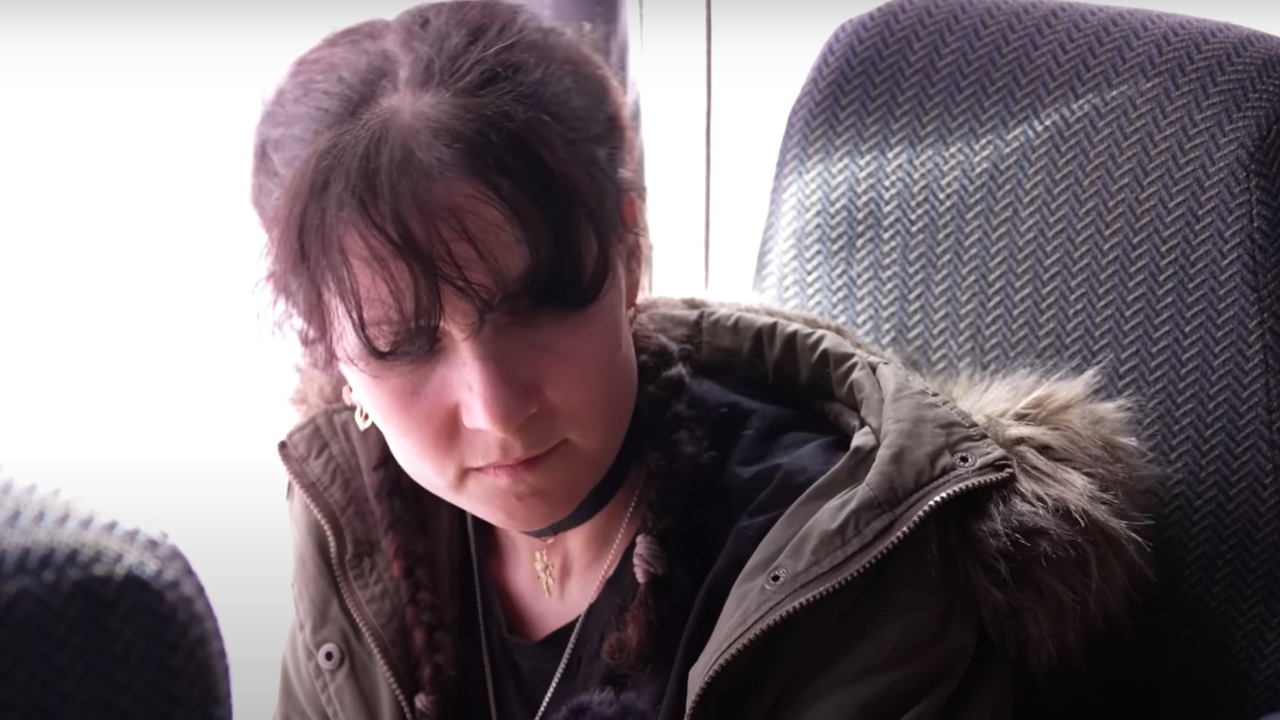
Olena Frolova. Screenshot from a video by Volodymyr Zolkin
According to the case file, Frolova’s brother, who served in the Armed Forces of Ukraine, also helped their sister from Kherson. In particular, he sent the coordinates of Ukrainian units’ positions. His case on charges of high treason is currently being considered by a court in Vinnytsia oblast. When the brother was exposed, Olena Frolova wanted to leave the country, but she was detained.
On May 21 Halytskyi District Court of Lviv City granted the public prosecutor’s motion to release Frolova from serving her sentence for exchange as a prisoner of war.
Sentenced Before 2022
Among the convicted whom courts released for exchange are two men who received sentences before the full-scale war.
In particular, in 2021 Oleksandr Skobliak was sentenced to ten years in prison for participating in a terrorist organization and encroaching on the territorial integrity of Ukraine. The investigation established that from 2016 to 2021 he served in “DPR” units. In 2021 service members of the Armed Forces of Ukraine captured the man. The decision to exchange him was approved on May 22 by the Mena District Court of Chernihiv oblast. Information about his departure is available on the “Khochu k svoim” website.
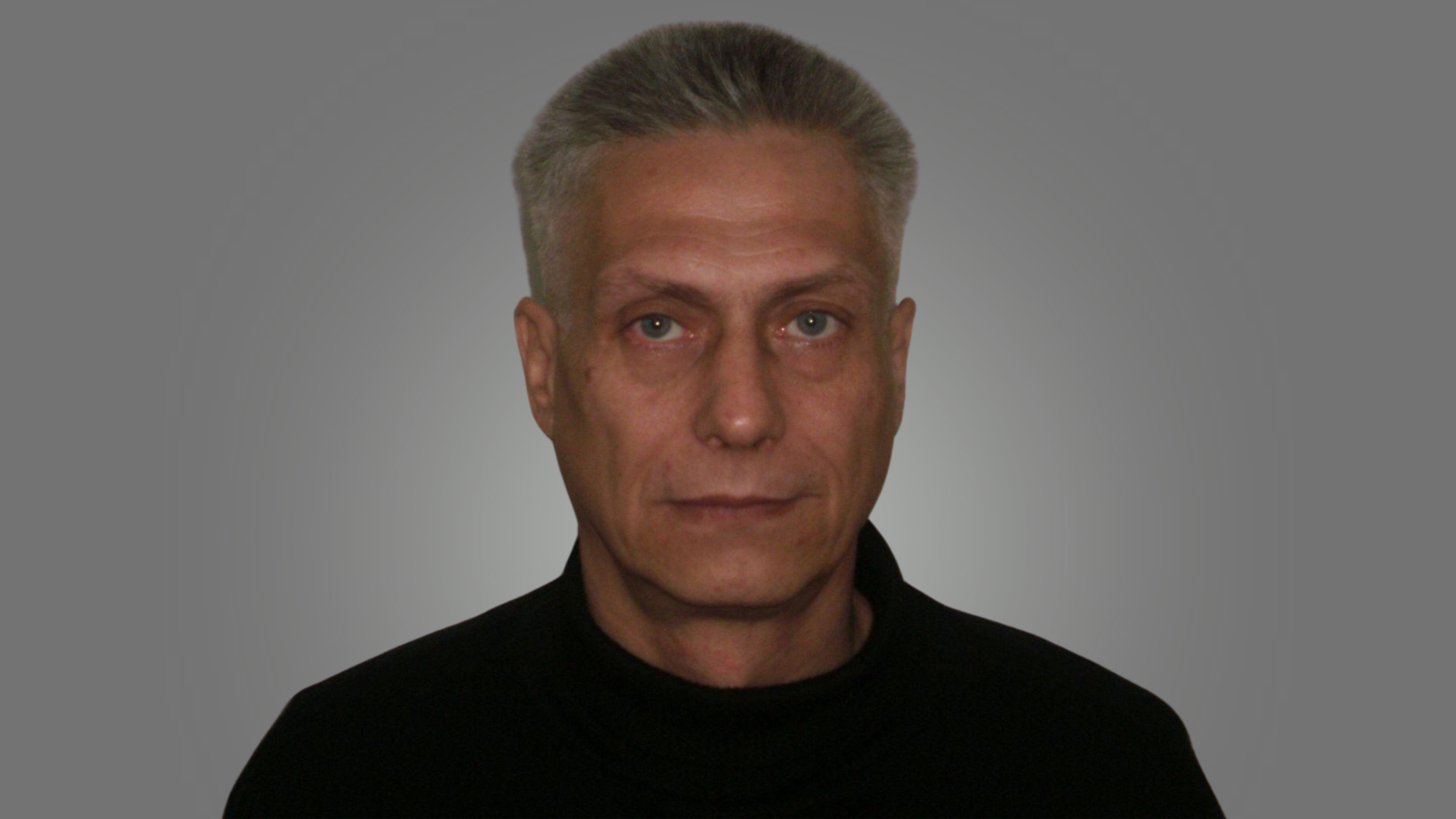
Oleksandr Skobliak. Photo from the Myrotvorets website
In 2020 Mariupol native Oleksandr Holovin was sentenced for participation in the “DPR” units. From 2014 to 2020, he fought against the Armed Forces of Ukraine in Donetsk oblast, commanded a mortar platoon. He rose to the rank of captain and had the call sign “SS.”
Holovin told the court that he suffered numerous injuries in the war but received no proper medical care either in the “DPR” or Russia. At the same time, during that period the FSB charged him with treason for allegedly collaborating with the SSU. So, he gathered documents and left for territory controlled by Ukraine. There he was detained. Although he petitioned for release from liability, since he voluntarily returned to cooperate with law enforcement, he was sentenced to nine years in prison.
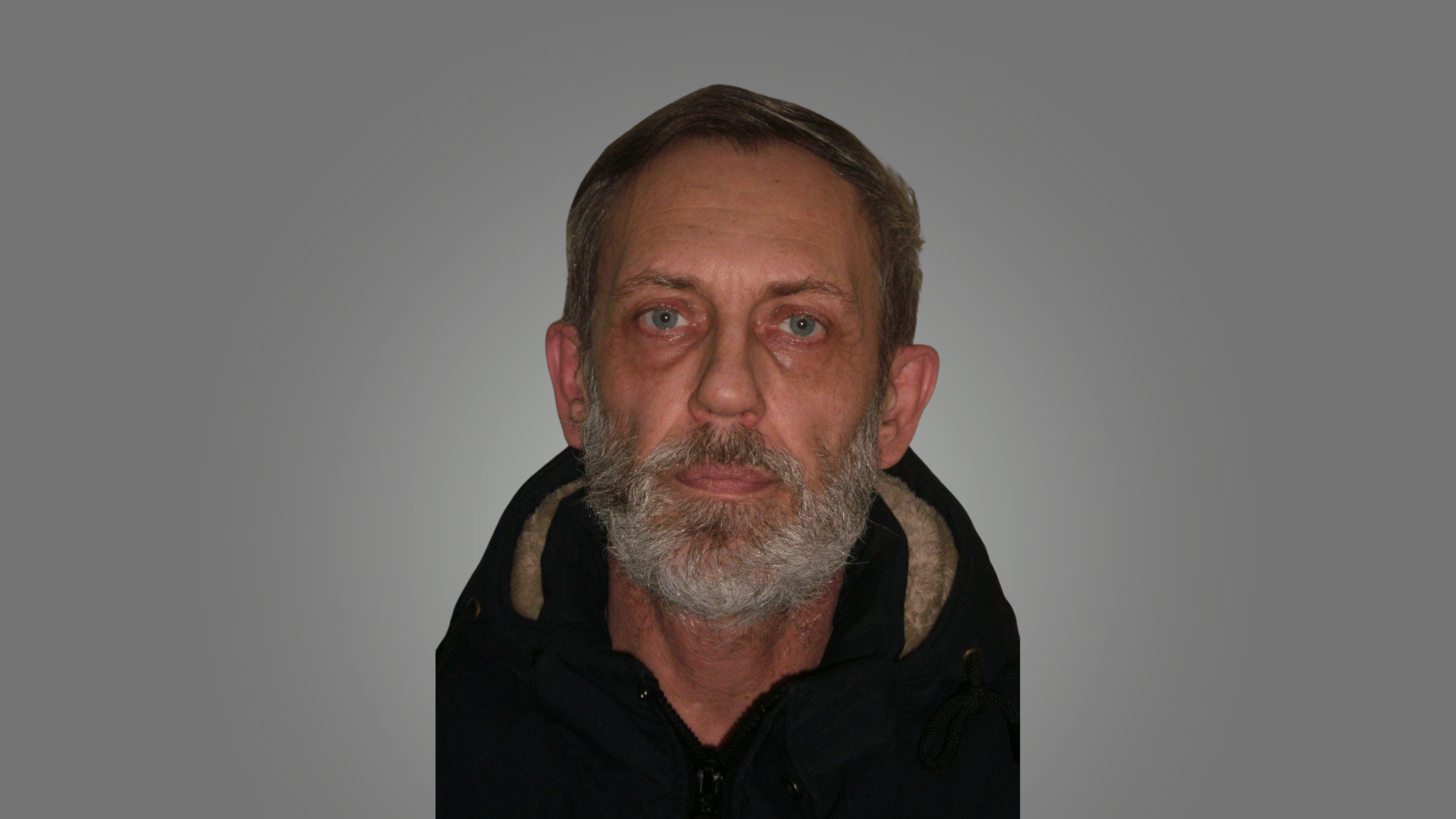
Oleksandr Holovin. Photo from the Myrotvorets website
On May 22 the Mena District Court of Chernihiv oblast released him for exchange. The man appears in Zolkin’s video about the exchange, but there is no mention about his departure on “Khochu k svoim” website.
High-Ranking Collaborators with Russia
According to the investigation, Oleksandr Tarnashynskyi coordinated a number of foundations and public organizations that were paid by Russia to discredit Ukrainian authorities and statehood and were preparing to seize state bodies. In particular, Tarnashynskyi participated in Viktor Medvedchuk’s “People’s Choice” forums. At trial, he denied guilt and explained his participation in meetings of Medvedchuk’s organization by the need for “people’s rule.” In 2023, he was sentenced to seven years in prison for attempting to seize state power.
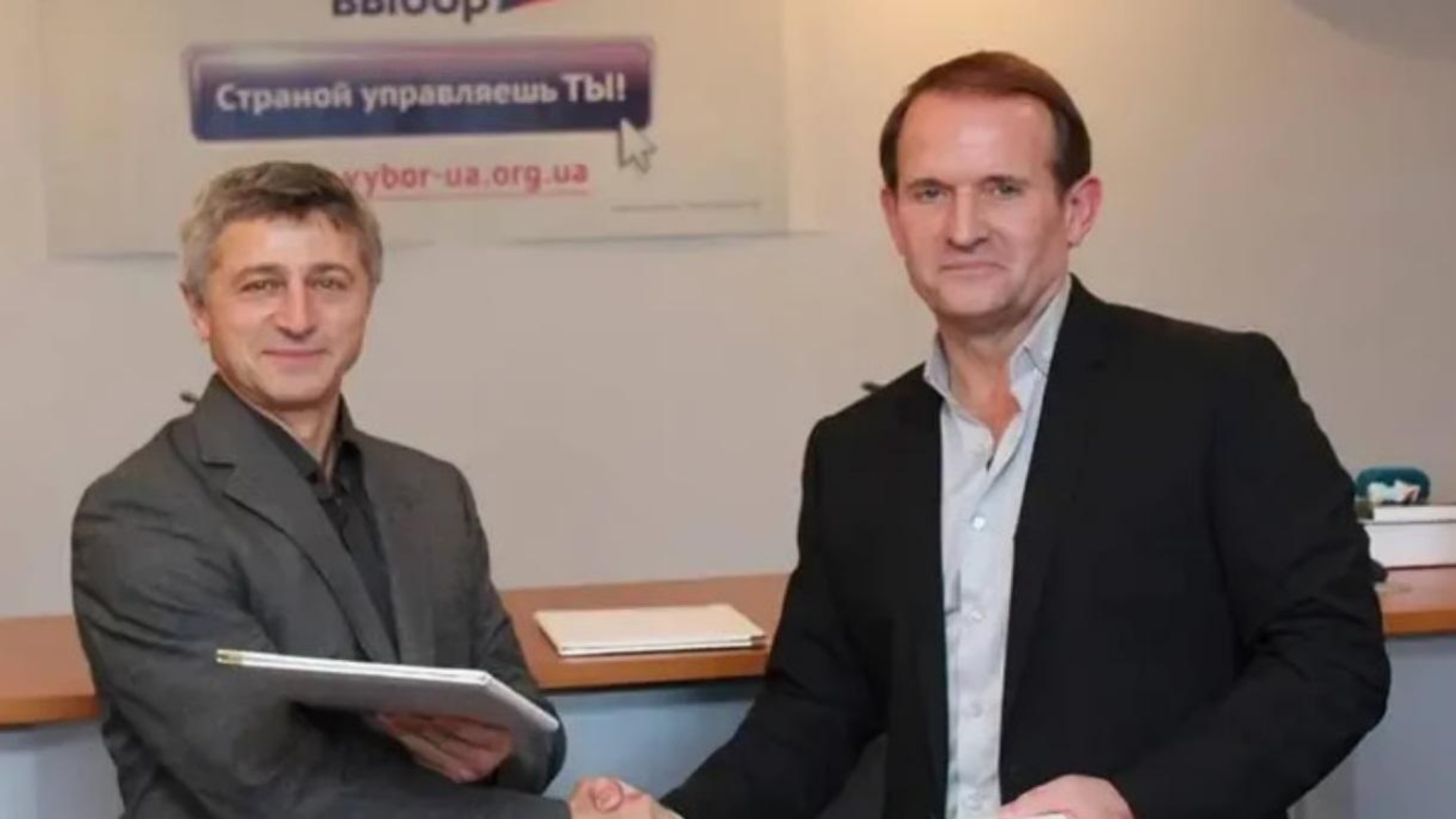
Oleksandr Tarnashynskyi and Viktor Medvedchuk Photo from public sources
Vitalii Vasiliev is a former lieutenant colonel of the analytical department of the Security Service of Ukraine in Luhansk oblast. According to investigation, in 2020 he obtained an “LPR” passport and collaborated with their “MGB.” In particular, he passed on information about three colleagues from the Security Service of Ukraine for recruitment purposes. He gave their addresses, information about their families, cars, and personal characteristics. At trial, the man admitted his guilt and in 2022 was sentenced to five years in prison for high treason.
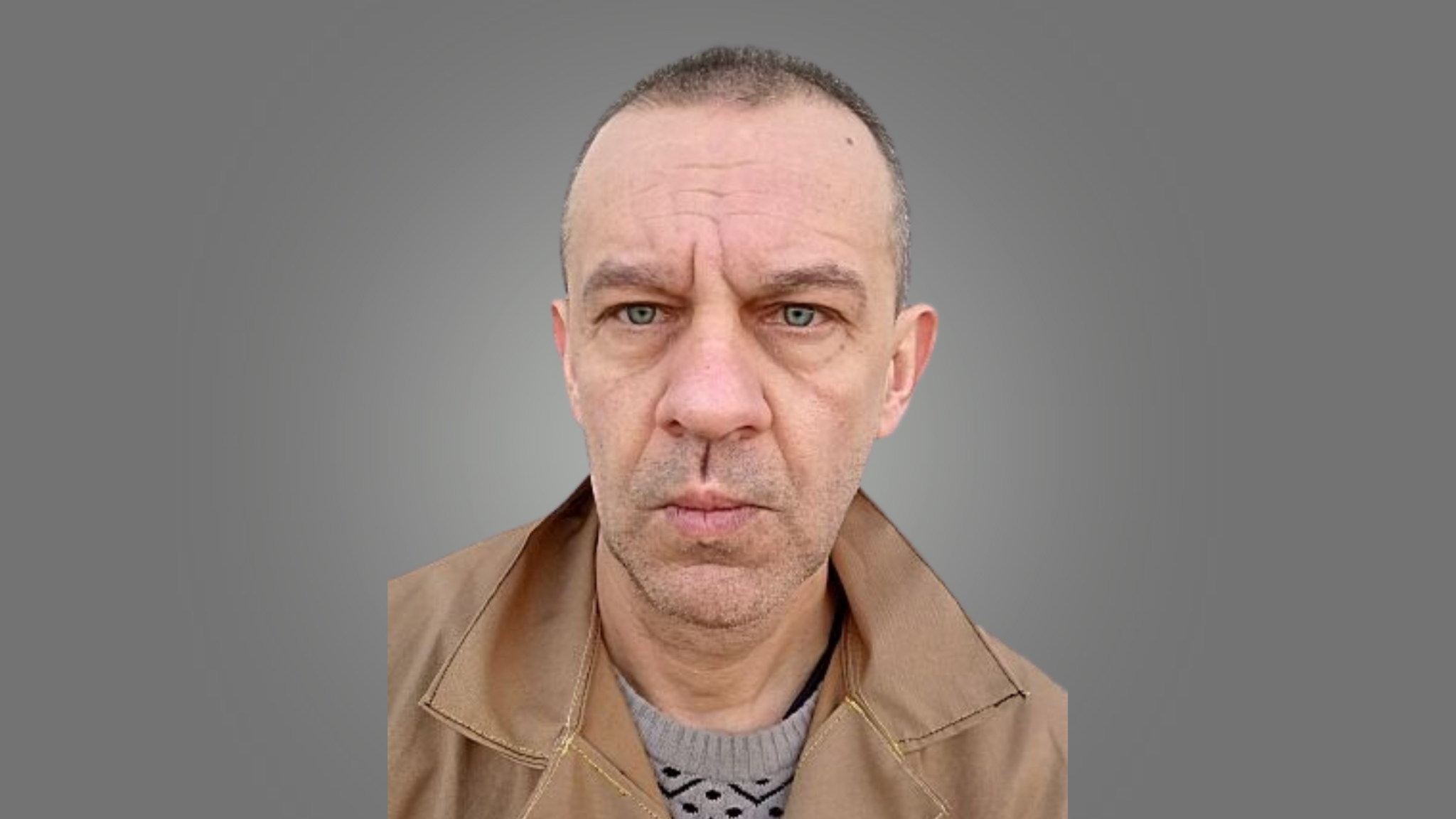
Vasyl Mekheda worked in the department of the Secretariat of Cabinet of Ministers and had access to state secrets for some time. According to the investigation, he spied on the FSB for 15 years in exchange for money. He passed on information in the fields of defense, economics, law enforcement activities, and Ukraine’s foreign relations, including classified data. To meet with the FSB, the civil servant repeatedly traveled to Russia, Belarus, Cyprus, Armenia, and Azerbaijan. He was exposed in 2022 and sentenced to 12 years for high treason.
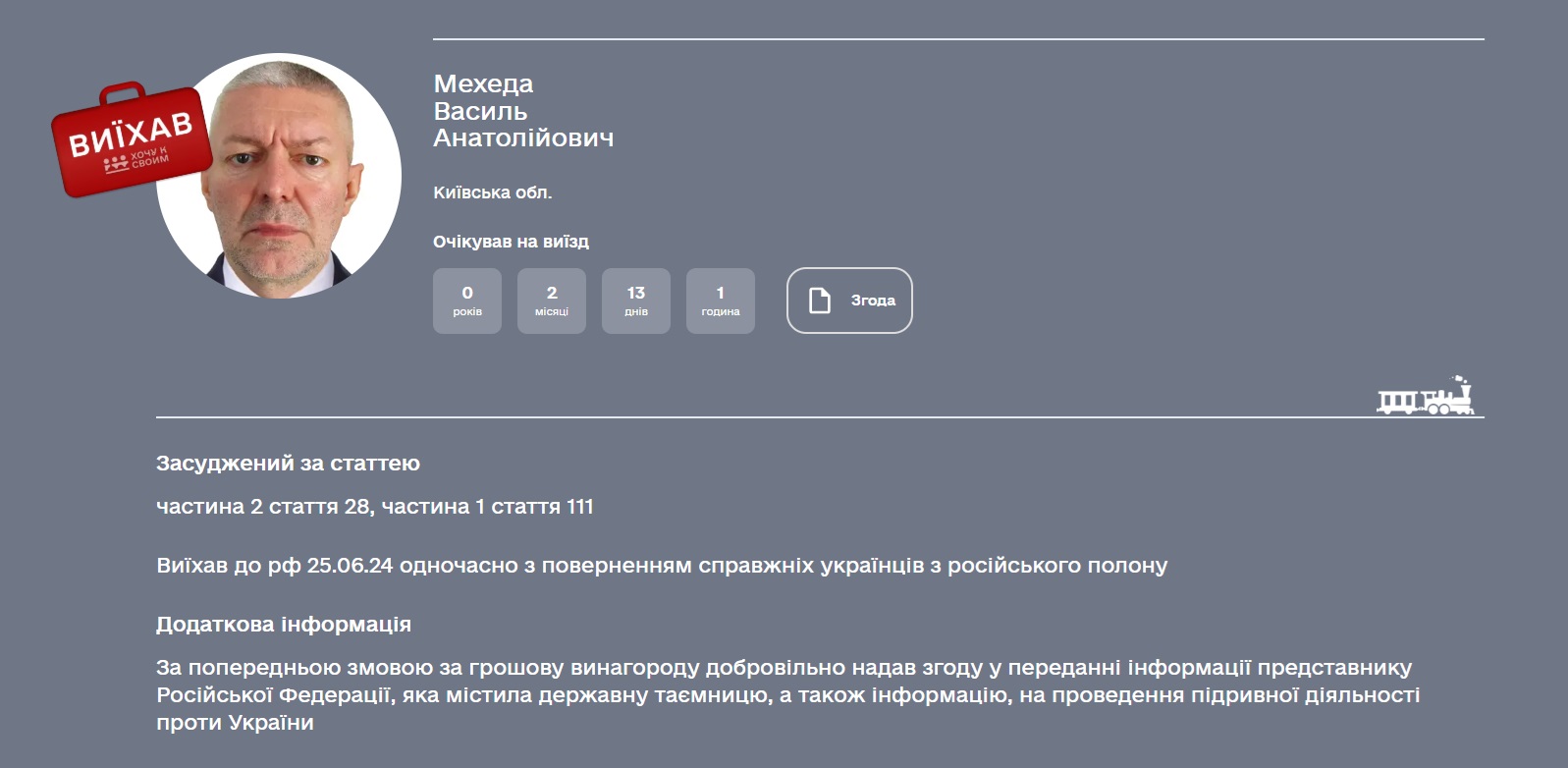
Vasyl Mekheda. Screenshot from the “Khochu k svoim” website
Exchange on Sentencing Day
Most people whom courts “released” for exchange were sentenced in 2022-2024. However, several of them were sentenced on the day of exchange.
On May 22 Primorskyi District Court of Odesa City sentenced Vasyl Romanko to 15 years in prison for high treason and simultaneously released him for exchange. The court also confiscated $5,000 and over €2,000 seized from him in favor of the state.
Romanko was born in Russia. In autumn 2024, he was serving in the Armed Forces of Ukraine when, according to case file, he sent information on operational activities of a Ukrainian military unit, Special Operations Forces tasks on the front line, and resistance movement activities in temporarily occupied territories of Crimea and Kherson oblast to a FSB representative who was not identified by the investigation.
The preliminary hearing in Romanko’s case took place in April 2025. According to the verdict, he confessed guilt, and the court considered the case in an expedited procedure.
Eduard Tumasian was also sentenced and approved for exchange on the same day. According to the case file, he sent photos of infrastructure objects and a military unit via Telegram in exchange for money. The man admitted he wanted to earn money this way but allegedly didn’t know these objects couldn’t be photographed. On May 22 Sviatoshynskyi District Court of Kyiv City sentenced him to 15 years for high treason and granted the motion to release him from serving his sentence for exchange.
The Exchange Didn’t Happen Despite the Decision
Oleksandr Smirnov is a novice at the Holy Dormition Pochaiv Lavra. In 2023, he was sentenced to five years in prison for wartime collaboration and glorification of Russia’s actions. According to case file, he clicked “Like” to a number of pro-Russian publications on Odnoklassniki that his subscribers subsequently saw. The posts concerned support for Wagnerites, “Russia’s war against NATO,” etc.
On May 21 the Vilniansk District Court of Zaporizhzhia oblast granted the motion for his release for exchange. According to the ruling, Smirnov did not object. However, on May 28 the Kremenets District Court of Ternopil oblast received a motion to transfer the man to continue serving his sentence.
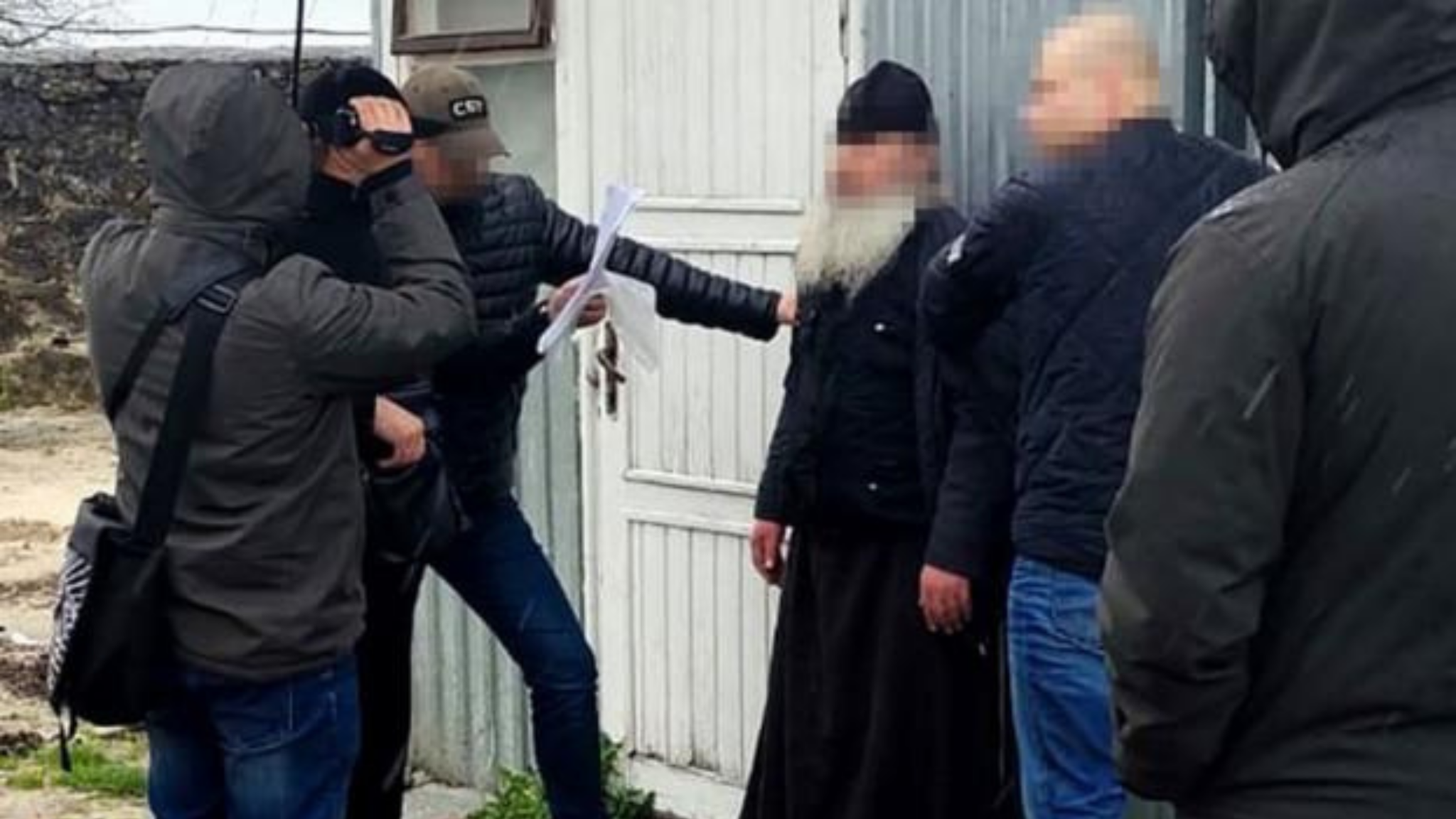
Detention of Oleksandr Smirnov. Photo: Security Service of Ukraine
This also concerns Bohdan Hrytsiuk. According to case file, in April 2024 he received a Telegram message from an unidentified user with coordinates of location of a Ukrainian unit. Due to his pro-Russian views, he forwarded this information to his brother living in Russia. The second episode described in the verdict took place under the control of Security Service of Ukraine officers who somehow learned about his interaction with the Russians. Investigators sent Hrytsiuk false information about the location of Ukrainian firing positions and documented how he shared this information with relatives. He entered into a plea bargain with the public prosecutor and was sentenced to six years in prison.
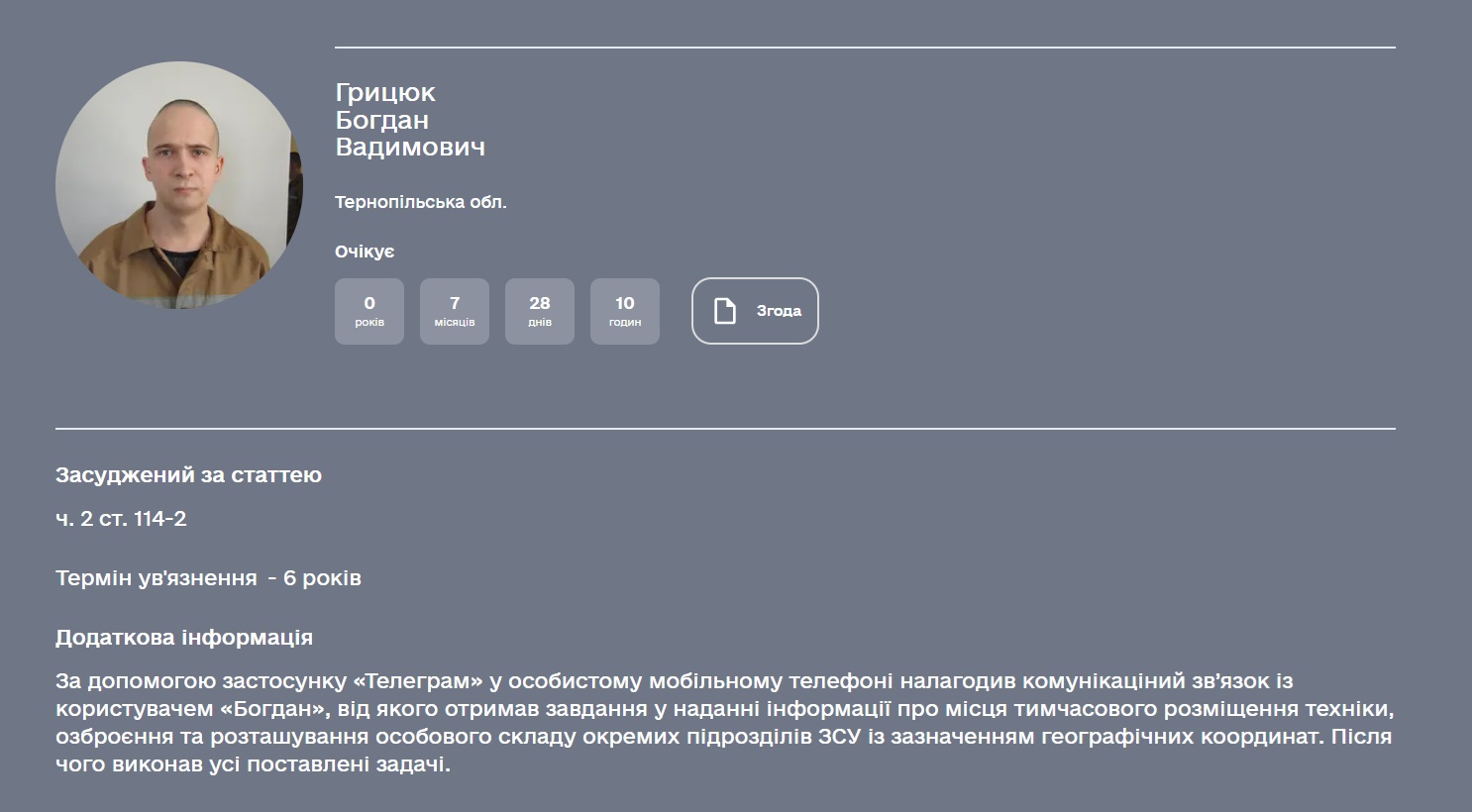
Bohdan Hrytsiuk. Screenshot from the “Khochu k svoim” website
Despite the previous decision to release him from serving his sentence and transfer for exchange, in June the Berezhany District Court of Ternopil oblast approved to send him back to prison. The ruling states that the exchange did not take place.
Released Without a Sentence
According to legislation, if it’s decided to give the accused for exchange but there’s no verdict yet, the court may change their preventive measure and place them under supervision of an authorized body. Subsequently, the case shall be considered in absentia. MIHR found five such rulings in the Register of Court Decisions.
On May 22 the Mykolaiv District Court of Mykolaiv oblast canceled the preventive measure in the form of detention for further exchange of Olena Smolyk. According to case file, she spread pro-Russian posts on social networks and wished Ukraine to “die.” This brought her to the attention of Russian special services and on their orders she gathered information about the location of Ukrainian military personnel, particularly marines. The woman’s fellow villagers confirmed her pro-Russian position.
On May 22 Darnytskyi District Court of Kyiv City approved a similar decision regarding Maksym Nikolaiuk. He applied to be included in exchange lists on May 19. The man is accused of high treason. According to the investigation’s version, in March 2024 he passed information to the Russians about a volunteer military formation and tactical and technical characteristics of FPV drone models.
Maryna Huz appears in Volodymyr Zolkin’s video about exchange. The woman refused to talk to him and stated that she had not been convicted. On May 21 Dniprovskyi District Court of Kyiv City released her and Vladyslav Loginov for exchange. Both are from Chernihiv and are accused of participating in a terrorist organization. Together with another man, they were tasked by Russian special services with manufacturing explosives to blow up critical infrastructure. Huz also took courses in UAV piloting and flew a self-assembled drone for reconnaissance around important facilities.
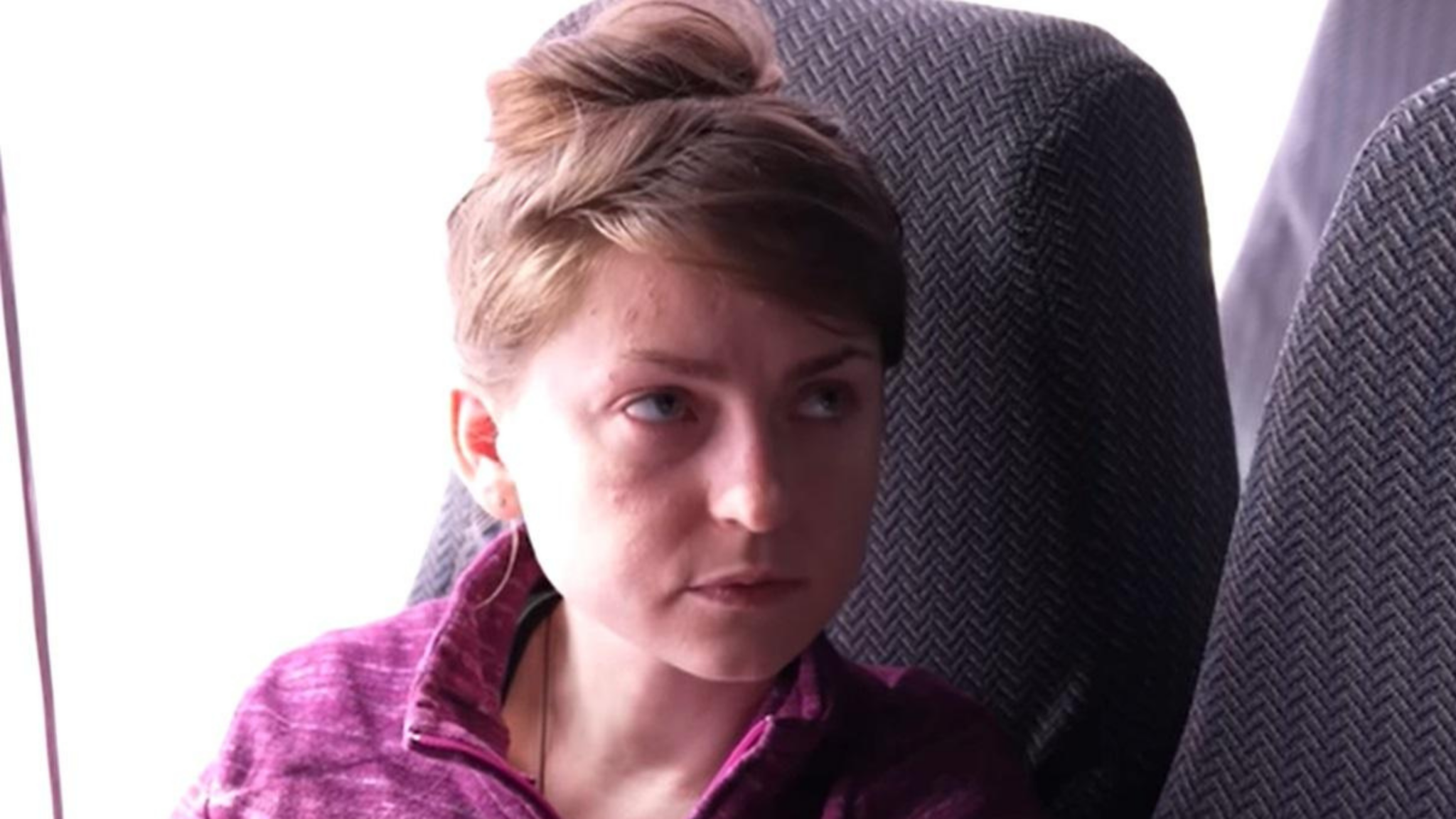
Maryna Huz. Screenshot from a video by Volodymyr Zolkin
Refusal of Exchange
On May 21 the Shyrokivskyi District Court of Dnipropetrovsk oblast released Tetiana Potapenko from serving her sentence for exchange. Her case is one of the most high-profile during the full-scale war.
Potapenko lived in Lyman in Donetsk oblast. When the city was occupied, she organized help for neighbors in need, as she had been a “street head” for years. To do this, she had to coordinate with the occupying authorities. Potapenko held no official position under the occupiers and did not express a desire to go to Russia in court.
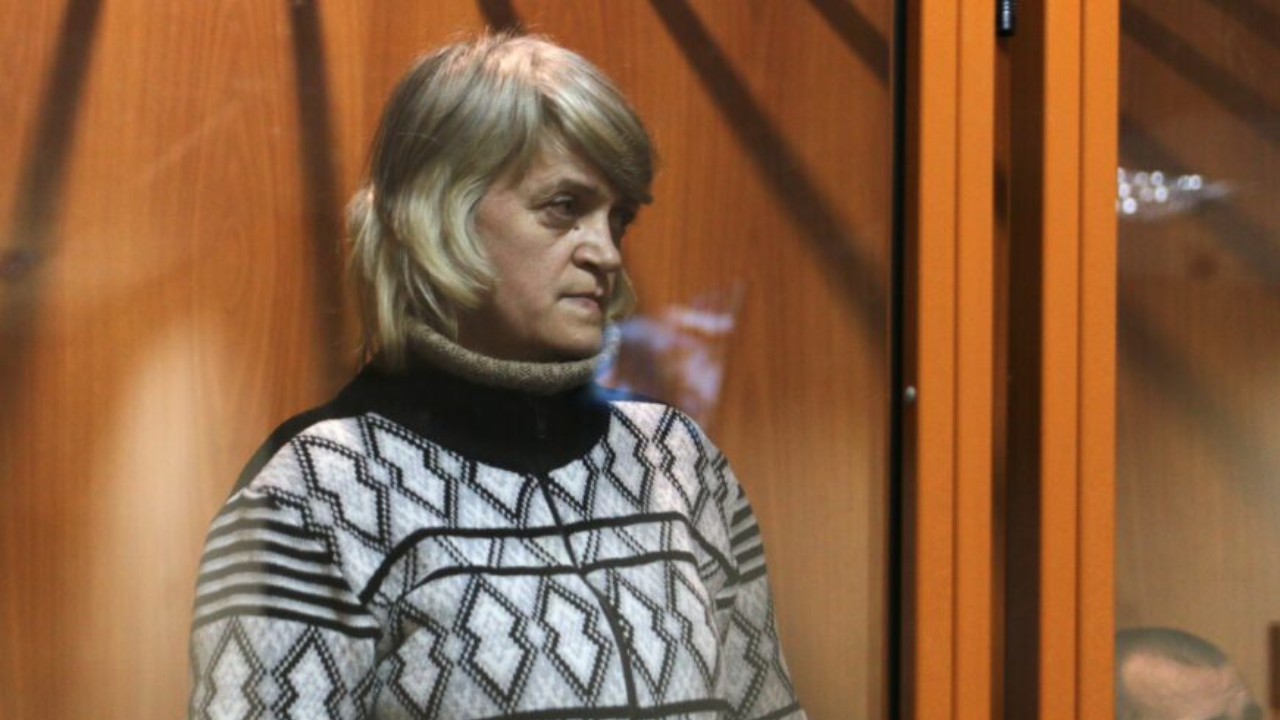
Tetiana Potapenko. Photo: Oleksiy Arunyan, Graty
The Potapenko’s case on wartime collaboration went through all court instances and she was ultimately found guilty. The cassation court left her with a prison sentence. However, one member of the panel of judges expressed a separate opinion that the woman’s guilt was not proven and according to the norms of Geneva Convention Relative to the Protection of Civilian Persons in Time of War, Potapenko indeed helped people in occupation.
As stated in the Shyrokivskyi Court ruling, the woman allegedly signed consent for exchange. However, according to MIHR data, she didn’t want to go to Russia and was not handed over for exchange in May. Currently, there’s no ruling in the Register of Court Decisions on her referral to serve her sentence. However, the Judiciary’s website has information about scheduling a hearing on her case for June 5.
Exchanges of Civilians and the Law
Civilians were exchanged not only at the end of May 2025. This has been happening since the beginning of Russian aggression in 2014. However, regardless of the phase of the war, this remains part of political agreements. How they were reflected in the legislative framework depended on context and format of negotiations.
Between 2014 and 2017, exchanges took place, in particular, within the framework of Minsk negotiations. In 2016, Ukraine handed over to Russia Vitalii Didenko, accused of attempting to create the Bessarabian People’s Republic in Odesa oblast. The court found him guilty of encroaching on the territorial integrity of Ukraine. Then-President Petro Poroshenko signed a decree pardoning Didenko, and he was handed over to Russia. Under the principle of pardon, another convict was handed over to Russia, and journalist Marina Varfolomeyeva was handed over to Ukraine in exchange.
After the change of power in 2019, the legislative justification for the exchanges changed somewhat. For example, at Russia’s request, four participants of the “Mangust gang” were handed over through exchange. This group, led by a former militia officer, seized the Ministry of Internal Affairs building in Mariupol in 2014. The court considered commission from the Prosecutor General to change the preventive measure for the accused from detention to personal obligation. In its decision, the court referred to the provisions of the Normandy format, the Prosecutor General’s commission, and Geneva Convention Relative to the Treatment of Prisoners of War, which provide for exchange. At the same time, the court noted the non-international nature of the armed conflict in eastern Ukraine.
In 2020, the “Kharkiv terrorists” were handed over to Russia through exchange – the three men who on Russia’s orders carried out a terrorist attack during the March of Dignity in Kharkiv in 2015. The day before, the court sentenced them and changed their preventive measure from detention to personal obligation. The basis for this was the Normandy format agreements on exchange, as well as President Zelenskyy’s plan. At the same time, the court referred to Article 377 of the Criminal Procedure Code, according to which a convicted person can be released from custody in exceptional circumstances established during investigation.
During that period, through the scheme involving a change in preventive measures, Berkut officers accused of shooting the Revolution of Dignity participants, as well as a number of well-known pro-Russian figures left for Russia.
Since the beginning of the full-scale war, courts in similar situations are guided by Article 84-1 of the Criminal Code of Ukraine. According to this article, in order to exchange a suspect, accused or convicted person, an authorized body shall decide to transfer them for exchange as a prisoner of war. The person must provide their written consent for exchange.
Subsequently, the court shall decide, upon the prosecutor’s motion, either to cancel the preventive measure for a suspect or accused person, or to release a convicted person from serving their sentence. The person is then transferred under the supervision of an authorized body.
If an accused person is exchanged before verdict, their case continues to be heard in absentia. If the exchange doesn’t take place, the court considers a motion to send the person to serve their previously assigned sentence.
Article 84-1 of the Criminal Code of Ukraine contains the term “prisoner of war,” but most such decisions concern civilians. Andrii Yakovliev, lawyer and MIHR expert on International Humanitarian Law, explains that this article was introduced as an amendment to the Criminal Code in early 2022, responding to full-scale war challenges.
“Prisoners of war are considered to be combatants of the opposing army. They are held in captivity until the war ends or until they serve their sentence if they committed a war crime. That is, the law was developed specifically for Russian army service members,” says Yakovliev.
But in practice, the article is more often applied to those convicted of crimes against the foundations of national security.
“In this case, the law is applied in the interests of, let’s say, more favorable interpretation,” continues Andrii Yakovliev. “That is, in the interests of both the convicted person and the state (i.e., our prisoner who is returned from terrible conditions). Therefore, this is a justified expanded interpretation of this norm.”
However, Yakovliev adds: for the sake of legal clarity, Article 84-1 of the Criminal Code of Ukraine should be amended to directly allow the exchange of people who are not prisoners of war. He suggests this process could be called not an exchange but a return of Ukrainian citizens.
The second aspect that legislation should regulate is the criteria for drawing up exchange lists. Ukraine handed over to Russia people who were prosecuted for war-related crimes. However, some of those returned by Russia shouldn’t have been on exchange lists at all, in particular those convicted of general crimes. Russia is already obligated to release them after they have served their sentences.
Also, among the released Ukrainians, there were none whom Russia detained before the full-scale invasion.
The great exchange: a report on how a thousand Ukrainians returned home
Yakovliev says that criteria for drawing up exchange lists, besides fairness of approach, would to a certain extent prevent Russia from endlessly increasing the exchange fund by detaining anyone.
The third problematic issue highlighted by the exchange is: whom to recognize as collaborators and hand over for exchange? Using the case of Tetiana Potapenko from Lyman as an example, Andrii Yakovliev explains that it is important to distinguish between a person’s actions that harmed Ukraine’s sovereignty and those that were of a humanitarian nature.
“The state is currently taking a tough line, punishing any signs of cooperation with occupation bodies. At the same time, it doesn’t consider that these actions are committed where Ukraine has no opportunity to help people,” says Yakovliev. “The threshold of criminal liability should begin with actions that harm Ukraine. But it is hardly necessary to criminalize mutual assistance and survival of specific people.”



